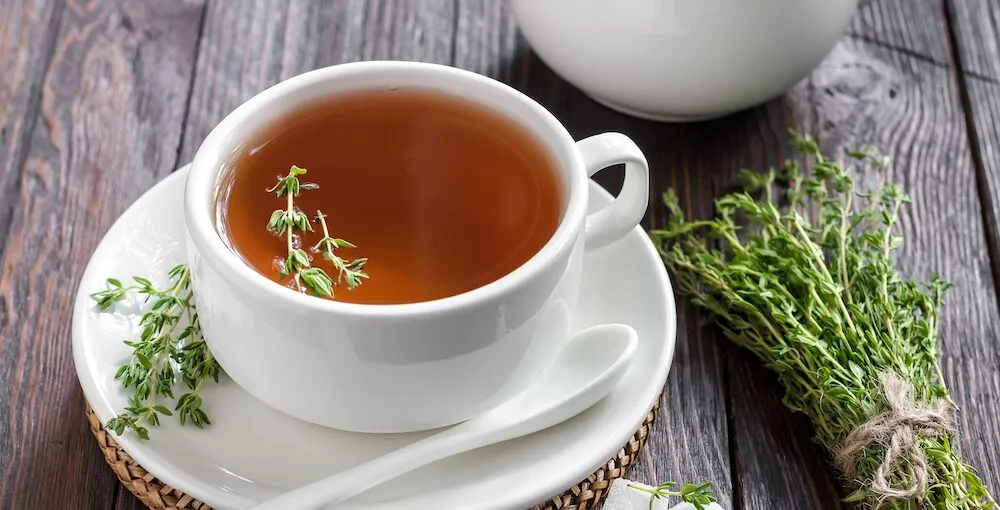
Selecting the Right Tea Leaves with Furn-Store
Share
Table of Contents:
A beginner's guide to choosing high-quality loose leaf tea
- Understanding Different Types of Loose Leaf Tea
- Factors Influencing Your Choice of Tea Leaves
- Determining the Quality of Loose Leaf Tea
- Benefits of Recognizing Quality in Loose Leaf Tea
- Environmental Impact
- Flavor and Aroma
- Caffeine Content and Health Benefits
- Origin and Processing Methods
- How to Choose and Brew Loose Leaf Tea
- Sourcing Organic Loose Leaf Tea
- Growing Loose Leaf Teas
- Making Your Own Loose Leaf Tea Blends
- How to Store Loose Leaf Teas
- Frequently Asked Questions about Loose Leaf Teas
When it comes to selecting the right tea leaves, there are several factors to consider. Understanding the different types of loose leaf tea is essential, as each type offers a distinct flavor profile and unique health benefits. Factors such as flavor and aroma, caffeine content, and the origin and processing methods of the tea leaves also play a crucial role in making the right choice.
To ensure the highest quality, look for whole-leaf grade teas that are carefully crafted using traditional methods. The appearance, color, and taste of the tea leaves are indicators of their quality. Recognizing these characteristics will help you make informed decisions when selecting your perfect cup of tea.
In addition to choosing the right tea leaves, knowing how to brew loose leaf tea is equally important. Brewing times and water temperatures vary depending on the type of tea, and using a tea strainer, infuser, or reusable tea bags can enhance the brewing process. Proper storage of loose leaf teas is also crucial to maintain their freshness and flavor.
Whether you choose to purchase loose leaf tea or grow your own herbal teas, the benefits of choosing high-quality loose leaf tea are numerous. Not only does loose leaf tea reduce waste by eliminating the need for tea bags, but it also allows for a wider variety of flavors and customization. By following these guidelines, you can enjoy a delightful and satisfying tea-drinking experience.
In conclusion, selecting the right tea leaves is a personal choice that depends on various factors such as flavor preferences, health benefits, and environmental impact. By understanding the different types of loose leaf tea, considering factors like flavor and aroma, and recognizing the quality indicators, you can make informed decisions when choosing your perfect cup of tea. Whether you purchase high-quality loose leaf tea or grow your own herbal teas, embracing the world of loose leaf tea offers a range of flavors and customization options. So sit back, relax, and enjoy a delicious and refreshing cup of tea made from the finest tea leaves.
FAQs:
-
How can I tell if a tea leaf is of high quality?
To determine the quality of loose leaf tea, look for whole leaves or large pieces. Avoid powdery or broken leaves, as they indicate lower quality. The aroma and color are also important indicators – vibrant colors and fragrant aromas suggest higher quality. -
What's the difference between loose leaf tea and tea bags?
Loose leaf teas are made from whole or large pieces of leaves, offering more complex flavors. Tea bags often contain smaller, broken pieces that may result in a more bitter taste due to increased surface area exposure. Loose leaf also allows for better infusion. -
Where can I find premium loose leaf tea?
You can find premium loose leaf teas at specialty tea shops, online retailers specializing in gourmet teas, or directly from reputable tea estates. Look for certifications such as organic or fair trade to ensure you're getting high-quality products. -
Are there specific brewing techniques for loose leaf tea?
Yes! Use freshly boiled water appropriate for the type of tea (e.g., green, black). Follow recommended steeping times and temperatures provided with your specific type of loose leaf tea to ensure optimal flavor extraction without bitterness. -
What factors should influence my choice of tea leaves?
Consider your preferred flavor profile (e.g., floral, earthy), caffeine content desired (e.g., low vs. high), and any potential health benefits you seek from different types of teas when selecting your ideal loose leaf variety.
